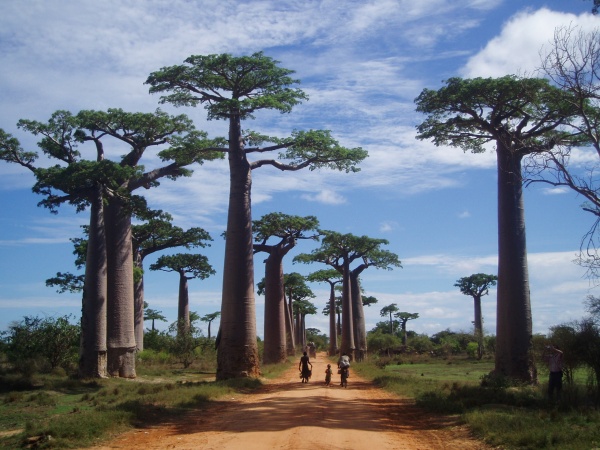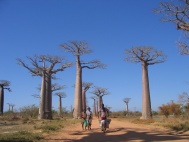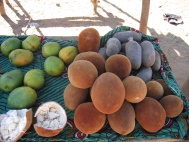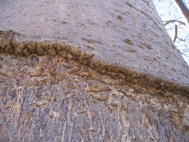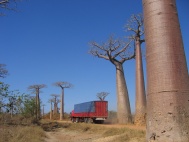Difference between revisions of "Baobab Avenue"
CampMaster (talk | contribs) |
CampMaster (talk | contribs) |
||
| Line 1: | Line 1: | ||
'''Baobab Avenue is a cluster of very large [[baobab tree]]s about 15km north of [[Morondava]] along the road to [[Belo-sur-Tsiribihina]]. It is one of the most photographed spots in Madagascar, appearing on many postcards etc.''' | '''Baobab Avenue is a cluster of very large [[baobab tree]]s about 15km north of [[Morondava]] along the road to [[Belo-sur-Tsiribihina]]. It is one of the most photographed spots in Madagascar, appearing on many postcards etc.''' | ||
| − | [[File:Baobab Avenue 011.jpg|600px|none|thumb| | + | [[File:Baobab Avenue 011.jpg|600px|none|thumb|Baobab Avene]] |
A tiny village and school is located nearby which usually welcome visitors. The baobab tree is the national tree of Madagascar, and is sometimes said to be an upside-down-tree. According to ancient Arabic mythology, it is the devil who pulled the tree out of the earth and re-planted it that way. | A tiny village and school is located nearby which usually welcome visitors. The baobab tree is the national tree of Madagascar, and is sometimes said to be an upside-down-tree. According to ancient Arabic mythology, it is the devil who pulled the tree out of the earth and re-planted it that way. | ||
Revision as of 18:15, 16 February 2010
Baobab Avenue is a cluster of very large baobab trees about 15km north of Morondava along the road to Belo-sur-Tsiribihina. It is one of the most photographed spots in Madagascar, appearing on many postcards etc.
A tiny village and school is located nearby which usually welcome visitors. The baobab tree is the national tree of Madagascar, and is sometimes said to be an upside-down-tree. According to ancient Arabic mythology, it is the devil who pulled the tree out of the earth and re-planted it that way.
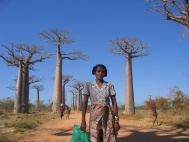 Sakalava woman at Boabab Avenue |
The best times to visit are at sunset and sunrise when the colours of the stems change and long shadows of the trees are most pronounced. Baobab Avenue can be reached by foot, bike or taxi-brousse. The location is also known as Allée de Baobab, Avenue du Baobab or Adansoinia grandidieri baobabs.
